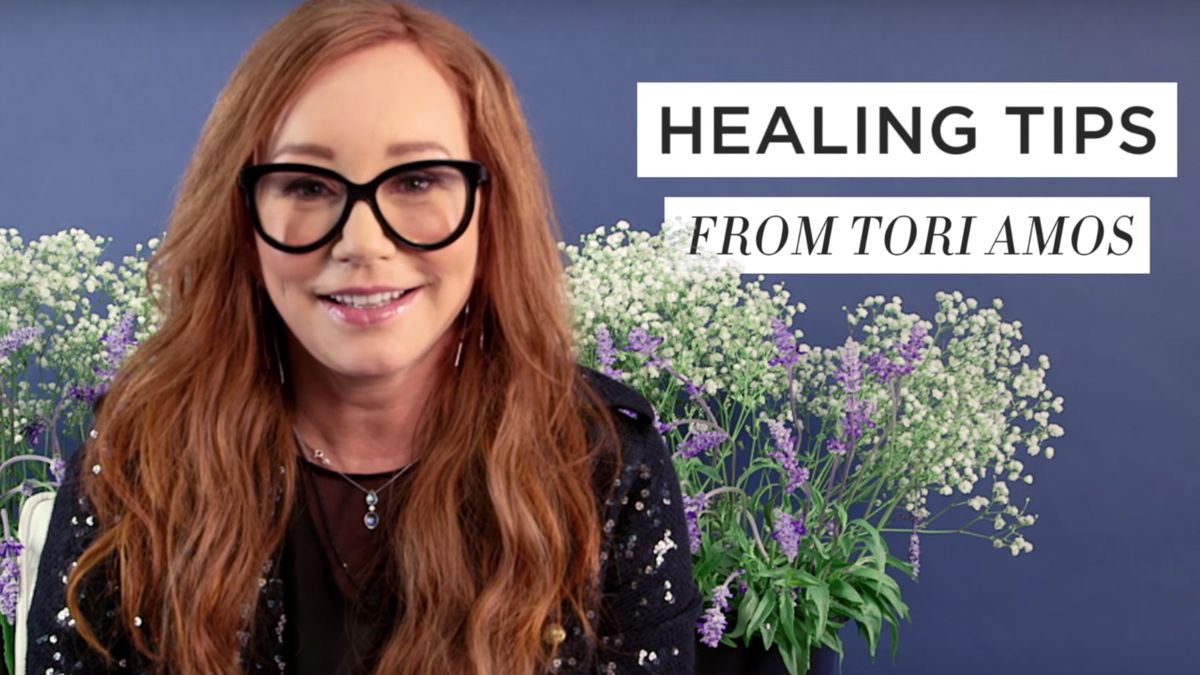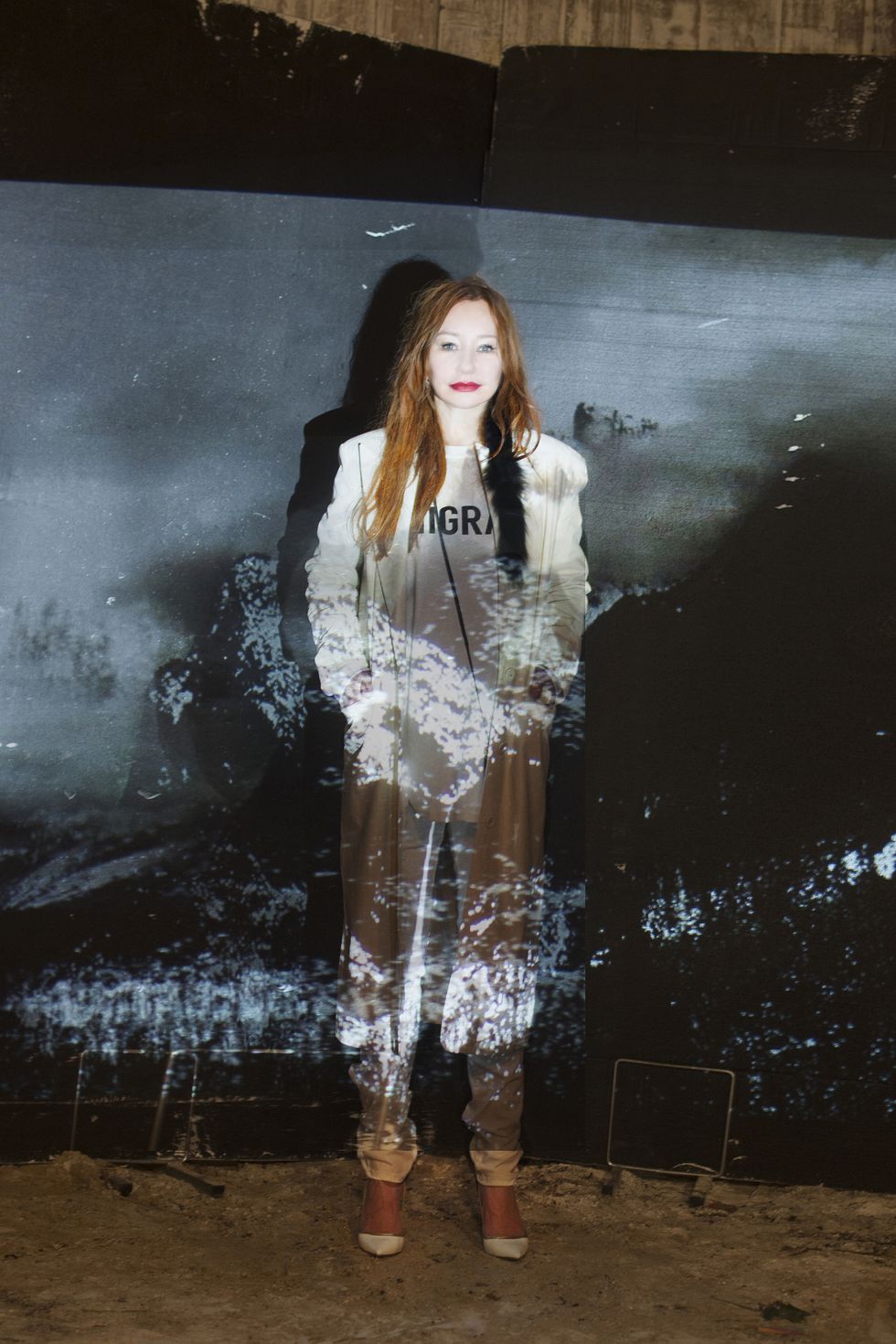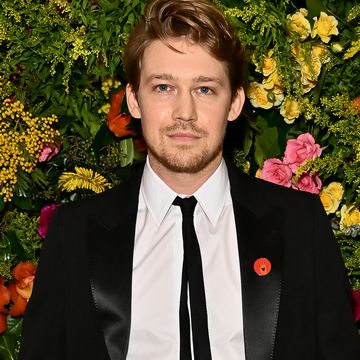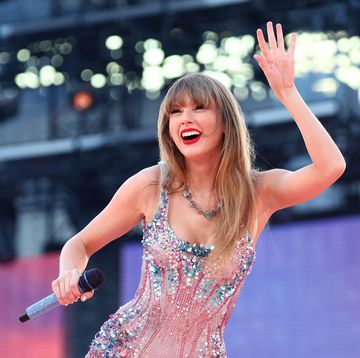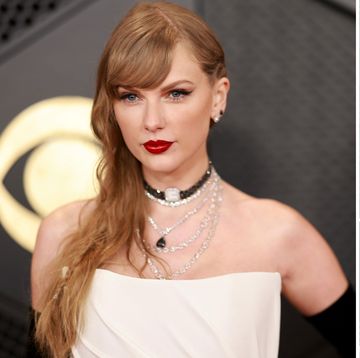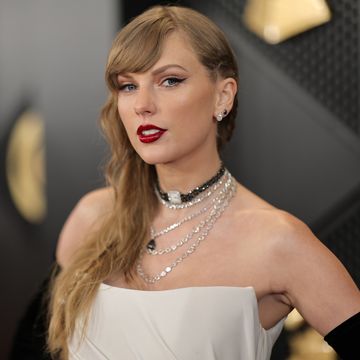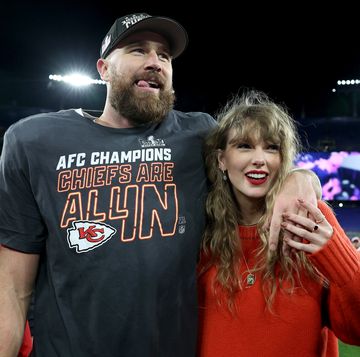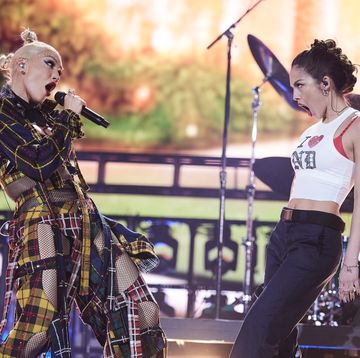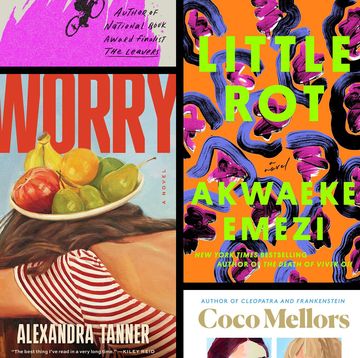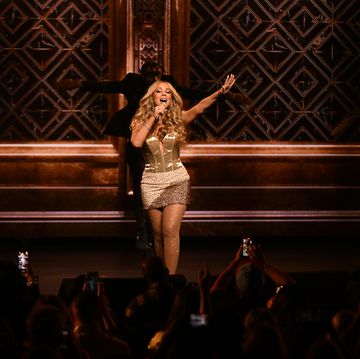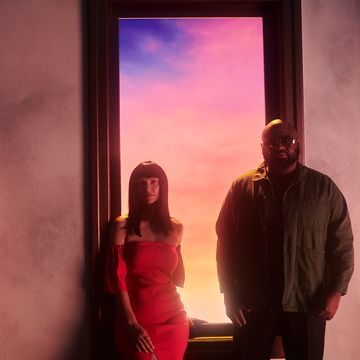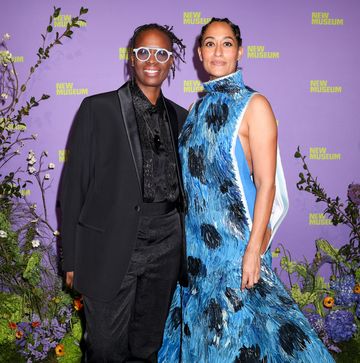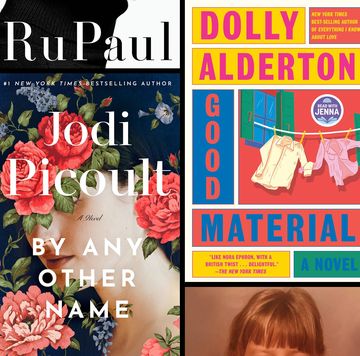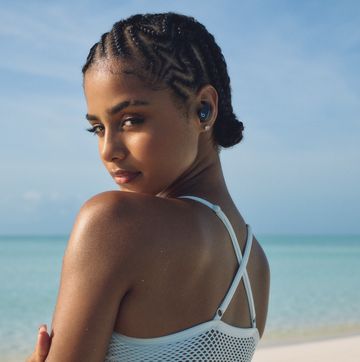If you grew up, felt heartbreak, or had a rebellious phase in the '90s, you know what it's like to find solace in Tori Amos. Her raw, relatable, and at times irreverent lyricism were a fitting soundtrack to one's formative years. But even now, decades later, her message is still relevant. Perhaps it's even more necessary, in a time where the news cycle has only worsened since November 8, 2016.
Amos is here to provide emotional refuge once again with her new album, Native Invader, a record informed by recent tragic events in the singer-songwriter's life: her mother suffering a stroke that left her unable to speak and the presidential election and its aftermath."It wasn’t going to be a record of pain, blood, and bone when I began. It wasn’t going to be a record of division," she explained in the album notes. But after she "watched the conflicts that were traumatizing the nation and [wrote] about those raw emotions," she couldn't leave those topics untouched.
"Hopefully people will find strength and resilience within the songs to give them the energy to survive the storms that we are currently in," Amos added. For some diehard fans, her influence never left, but for those who stopped listening, now is the perfect time to start again.
Before releasing her new record, Amos talked to BAZAAR.com about her new project, and offered her self-healing tips for surviving the current political climate.
Native Invader is Amos' 15th studio album. At this point in her career, she still asks herself who she makes music for.
"Sure, you need to ask yourself that question. You need to always be asking yourself questions because when I stop asking myself questions, then I don’t know what alternate Tori is up to, you know, because sure there are sides to ourselves that can be motivated by different things. Seduction is something that can happen with success and you got to check it. You have to be clear on your intentions. So, I have a word—that’s what some people say, ‘Go have a word with yourself’ so I go have a word."
She goes through that process every time she makes an album.
"With every project, for sure. And within every project it’s just good to be clear on 'What are we trying to say here with this song?' And sometimes it is collaborative because people you are working with are saying what they’re hearing, what it’s making them feel and then I realize that, 'Oh I’m missing an ingredient here because one of those things that you want to be in there, no one is feeling!' So it is about questioning."
She credits a certain energy to the strong personal and emotional connection she and her music have with her fans.
"The reality that’s been happening since I was a little girl is that I am not writing this by myself, I’m really, really not and in my heart there is an energy, I call it the ‘Muses 9’ and yes I could write a song a day, it doesn’t mean anyone should ever hear it or I am ever going to play it again. I understand structure, I understand music, I can write a few songs a day, but it doesn’t mean anyone will be moved by them—even me. When they tap me on the shoulder—and sometimes it’s months when I don’t hear from them and sometimes its nonstop for a few weeks—it's indifferent energy."
Amos has written thousands of songs that we'll probably never hear.
"There are thousands of songs that will never see the light of day because they shouldn’t be heard, they are not proper songs. Do you know what they are? They are an idea that wasn’t expanded upon."
At times she'll record her ideas, but they don't always turn into fully-produced tracks.
"Not always. Sometimes I’m walking down the street or getting a coffee. And its words and quotes and they are just my walking songs, my coffee walking song and that’s all it should be.
"It’s called sonic doodling."
What are the differences between Little Earthquakes Tori Amos and today’s Tori Amos?
"Songwriting-wise, nothing. It’s the same process that was happening when I was two and a half. As a person, I’m a mother and I’ve gone through menopause and I’ve come out the other side. Not everybody makes it out the other side without some kind of energy loss; depreciation of yourself as a woman because you buy into the idea that you’re not vital because you’re not fertile. My brothers in arms can have babies. Don’t think that isn’t something. It’s a different path up the mountain and when you take the seat at the fire at your 50s. Man and woman have taken a different path to get there. They can still procreate. We can’t. I’m not talking about using science here.
"You have to understand your worth not being able to procreate, but your ideas can be as fertile as they were at 21 and in some ways, because you have come through the death of fertility, you have something that a 28-year-old will never and can never understand. I understand what 28 is. I am not that now, but I have been there. A 28-year-old hasn’t had the 12-15 year journey of pre-menopause, menopause, not being able to bleed. Now let’s talk about not being able to bleed. Guess what? I’m not bleeding out. What’s happening? I’m containing it. Now think about that."
Changes like menopause are a lot to process.
"Yes, but there is a lot of humility. There is a lot of responsibility when you sit at that metaphorical fire with your sisters who have been through that. There’s an understanding. There’s a wisdom that is hard learned and some women have died in the process. Think of all the women who have died by suicide through the menopausal period. You’re going to look at some great artists and loving people that you knew. The hormones are a powerful thing. There is a death happening. Part of the records I have been making since my early 40s, including Doll Posse, were dealing with different parts of it."
Amos may be behind many people's "desert island album" of choice, but if she were stranded, she'd want to be stuck listening to Joni Mitchell, Prince, or U2.
"Oh, well. There’s more than one. There are a few. Joni Mitchell’s Blue, Prince’s Purple Rain—just because it was a time in my life. It was an energy. Peter Gabriel’s So. U2’s The Joshua Tree—it came at a time in my life when I went to Joshua Tree with friends and we would make soup. We would lay out under the stars. We would cry. We would cry into the arms of the mother earth. Just under the stars. This was the '80s and we would try to figure out, 'What are we doing? Why are we chasing commercial music?' And the music said, 'You need to go back to where you were when you were five.'"
She actually met Prince once in Minneapolis, when he came to see her on tour. One of her favorite memories of him was watching him watch her on stage.
"I was on the Doll Posse tour and I can’t remember which posse girl I was on stage first that night. But every time I turned from piano station to the keyboard, he was either backstage or by the monitor, so I’d be seeing Prince, jammin’ and doing his own mix on the side because my monitors were set up for a certain way for me to hear what I’m doing.
"And he’s jamming and then when I went over to the keyboard, within seconds he’s running around the stage in his heels to that station and there was no monitor set up so he was watching and then when I would turn and he just ran over there. I would hold it and turn back, and within seconds, he’s running over back again.
"So there was this moment that night when we were air-playing a music-dance where he was tracking me and I thought, 'Okay, I’m learning something here.' He’s tracking the frequency. He’s tracking the movement. And then I thought, 'I’m going to apply that.' Just that energy, it was so focused."
He didn't get to tell her what his favorite song of hers was that night, but she paid tribute to him with the perfect performance.
"I played “Hey Jupiter” which was in honor of him. It was inspired by John Lennon, but the end is an ode, an homage to him, to Prince."
Native Invader is out now. Stream the album below.
